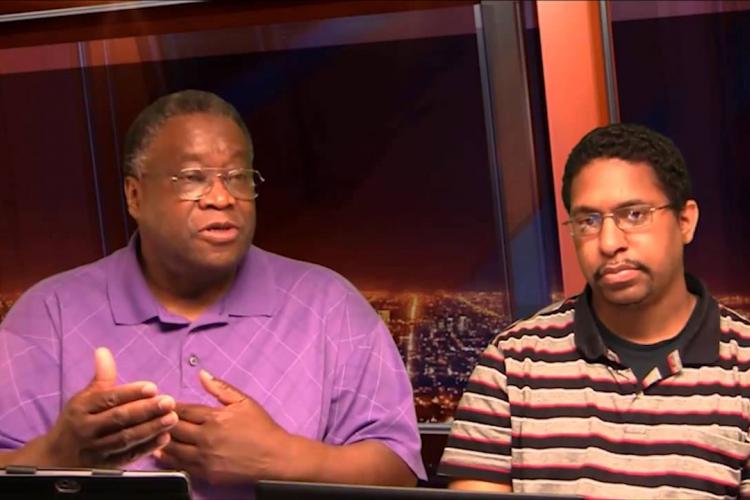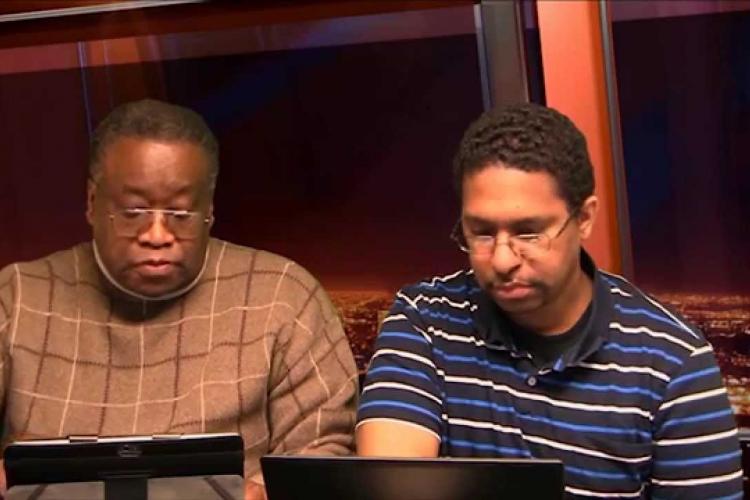What does the Bible teach us about God and missionaries? What is a missionary and what is their mission? In what ways is God Himself a missionary? What took place in the Garden of Eden that caused humanity to be lost? How did Jesus Christ address that problem? What were the consequences of Sin? Why did Adam and Eve fall? What implications does this have for missionaries today? Why did God choose to operate through missionaries instead of heavenly beings or doing the work Himself? This week we tackle many of these subjects as we explore God as a missionary.
Learn how the gospel of Luke portrays the crucifixion and resurrection. What do these two events mean for humanity? What hope do they provide for Christian believers? Which person in Jesus' final hours are you most like: Peter, John, Judas, the women, Joseph of Arimathea, Pilate, or Herod? This lessons shows us how in some ways we may resemble these individuals in how they related to the death and resurrection of Jesus. This week we explore the cross and the risen savior, without which Christian faith would be in vain.
What is the Kingdom of God? What are it's characteristics? What did Jesus teach about this kingdom. What is required for entry? What are the two phases of this kingdom and when does each begin? Is it possible to experience the kingdom of God today? What great hope are we still looking forward to? We tackle these questions in this week's lesson as we explore the kingdom of grace and the kingdom of glory.

Class B1 Sirius and Natalie; the purpose of Baptism. What does it mean to go into the watery grave? Why get baptized at all?
What was the mission of Jesus? How is that mission expressed in His parables? What do we learn in the parables about how God views the lost? How do these stories demonstrate the character and love of God? This week as we study the book of Luke, we explore some of the parables as we look at Luke's understanding of Jesus' mission. We will look at the parable of the lost sheep, lost coin, prodigal son, rich man and Lazarus, and the servants entrusted with talents.
Who is Jesus? How each of us answers this important question makes a big difference. Some view Jesus as a great teacher, prophet, or religious figure. But who is Jesus and what difference does He make in our lives? As we explore the gospel of look we find not only what the people of His time thought about Him, but also what the Father testified of Him. What are the different names for Jesus? What is meant by the terms "Son of Man" and "Son of God". How can we understand these terms in relation to the role, mission, and person of Jesus.
This quarter we begin our study on the book of Luke. What does this book have to say about the first advent of Jesus Christ? How does Luke approach this subject? What can we learn from the two miracle births of John the Baptist and Jesus? As the angel came to bring the news, how were the reactions of both sets of parents different? Who exactly was Luke and what makes him a credible source of information? Did Luke witness everything? If not, how do we know his account can be trusted? Why was the book of Luke written? This week we tackle many of these subjects.

Andrew and Rachel discuss the Law of God and if obedience to that law is legalism. What is the relationship between law and grace!

Rachel, Christine, and Andrew talk about the plan of salvation: God's plan to rescue mankind. Did God always have a plan in place in case humanity would sin? Is salvation for everyone?

John Spellman preaches on preparation to meet God. Is going to Church and going through the motions of religion really enough? What did Paul mean by "form of godliness"?






